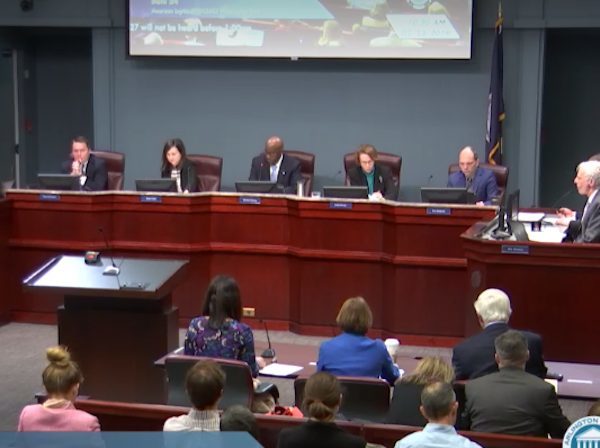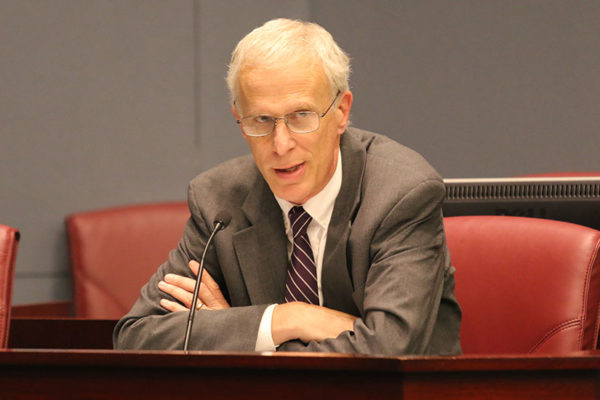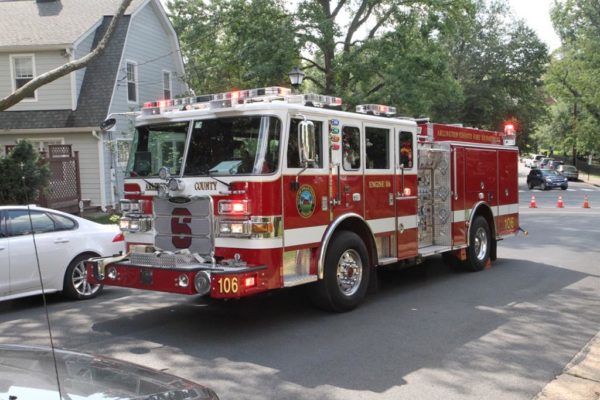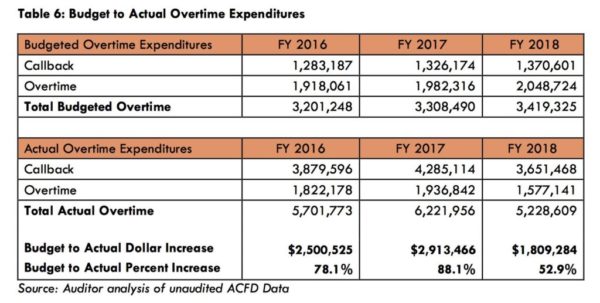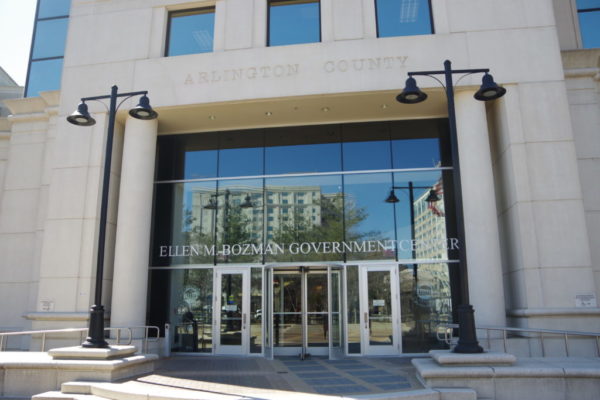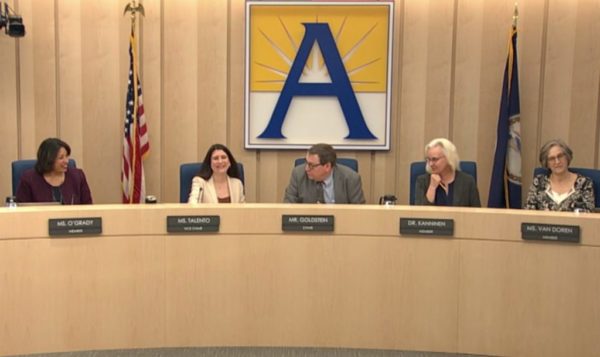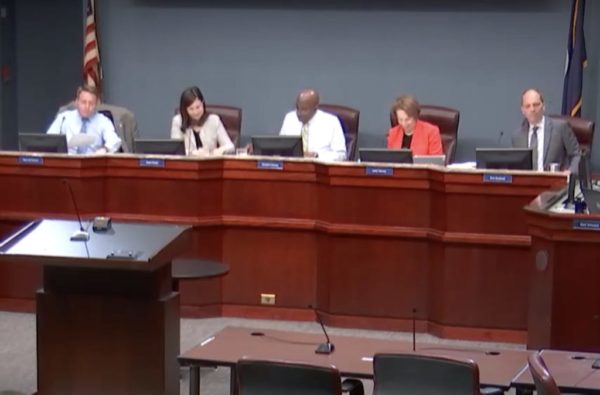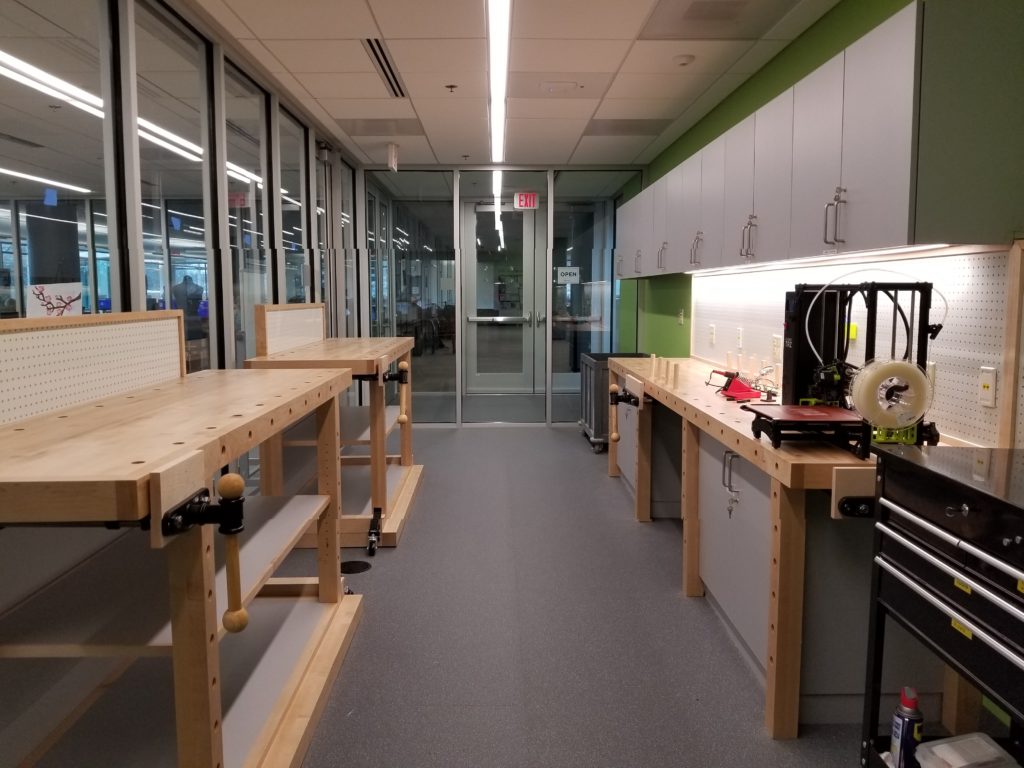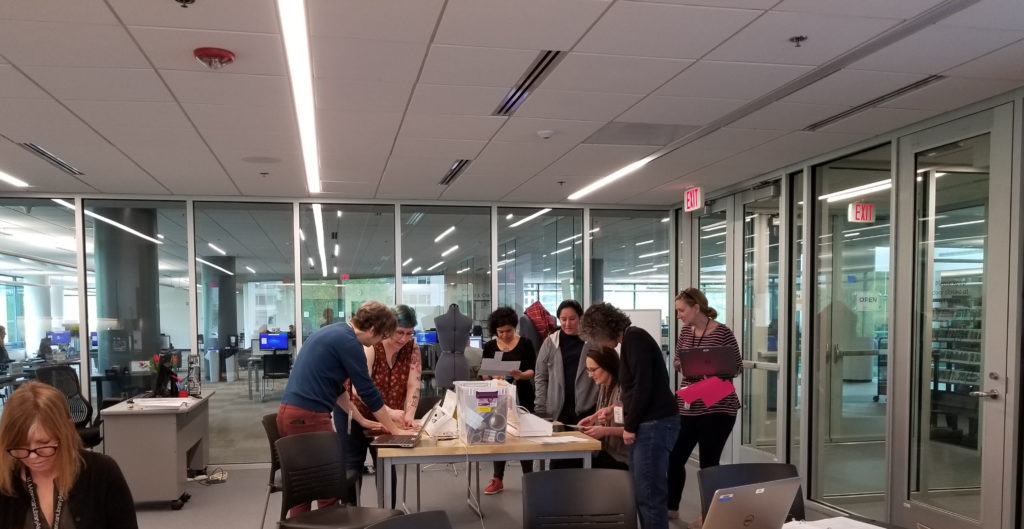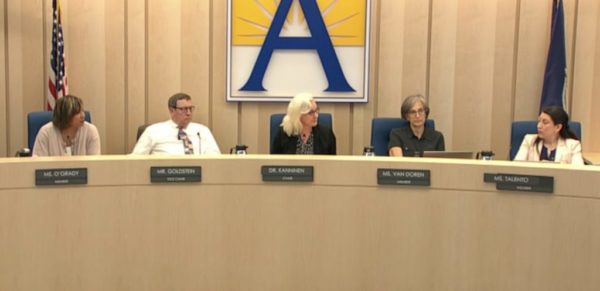(Updated at 12:05 p.m.) The Arlington County Board is asking the County Manager for a budget that contains no property tax rate hike and maybe even a rate cut.
Members gave their Fiscal Year 2021 guidance to County Manager Mark Schwartz at last night’s recessed Board meeting.
The guidance for reducing the tax rate or keeping it steady will likely not, however, result in lower tax bills, as property assessments are expected to continue to rise in the wake of Amazon’s arrival. The average real estate assessment is expected to jump 4-6 percent next year.
A budget forecast paints a rosy picture of Arlington’s post-HQ2 economy, with business tax revenue expected to grow as well, though budget pressures of Metro, county employee compensation, needed stormwater improvements and flood mitigation, and a growing school population remain.
The Board also took action last night on the affordable housing front, asking the manager for options that could hike the county’s annual Affordable Housing Investment Fund contribution to as high as $25 million from the current $16 million. Additionally, the Board largely accepted Schwartz’s recommendation to carryover unspent funds from the last budget to the new budget and to reserve funds, but set aside $500,000 for emergency housing assistance.
“The Board understands that anticipated increases in property assessments could have a real impact on residents,” Arlington County Board Chair Christian Dorsey said in a statement. “We want the Manager to come back to us with a proposed budget with no increase in property tax rates and to consider a reduction in the tax rate if possible. Our guidance to the Manager also emphasizes the need to invest more in preserving and creating affordable housing in Arlington, including housing affordable to extremely low-income families.”
The manager will present his proposed FY 2021 budget in February, after a months-long public budget process, which will then continue through the Board’s budget adoption in April.
More from an Arlington County press release, after the jump.


